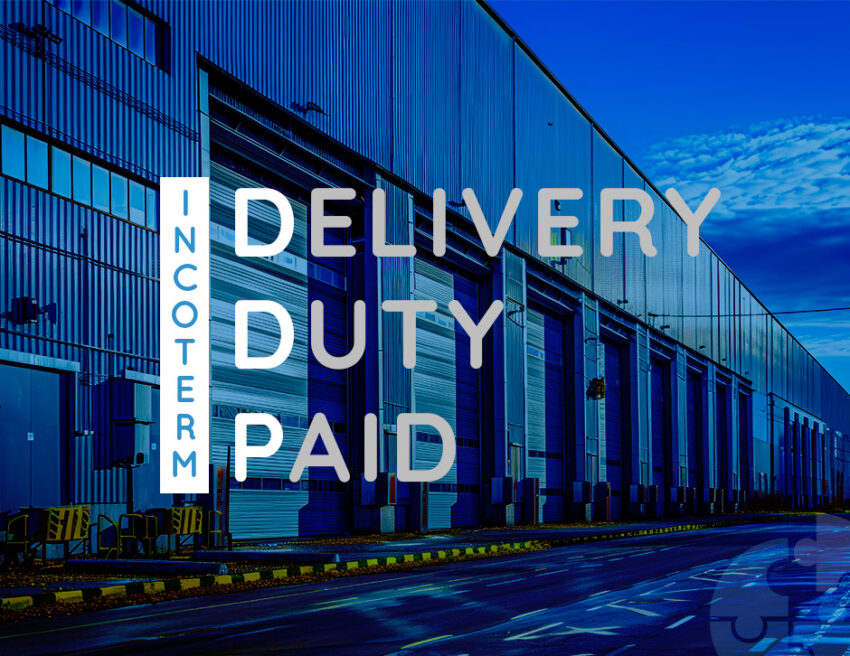Think about the last time you ordered a product from abroad. Maybe it was a beautifully crafted leather bag from Italy or a unique gadget from Japan. You tracked your package eagerly, but when it finally arrived, a surprise awaited—an unexpected customs bill, just to get your hands on your eagerly anticipated purchase. Now, imagine a world where this unexpected hassle is eliminated, where the price you pay at checkout is all you ever have to worry about, and your purchase arrives without additional costs. This, in essence, is what the DDP (Delivery Duty Paid) Incoterm does for international shipments.
In international trade, terms like DDP simplify the complexities of shipping across borders. The buyer doesn’t have to worry about navigating customs, import duties, or taxes because these have been handled by the seller. It’s a term that promises ease and convenience, making it highly appealing for importers and buyers alike. In this blog, we’ll take a deep dive into DDP, exploring how it works, its benefits and drawbacks, and where it fits best in the world of global logistics.

What is the Delivery Duty Paid (DDP) Incoterm?
DDP, or Delivery Duty Paid, is one of the Incoterms (International Commercial Terms) defined by the International Chamber of Commerce (ICC). Incoterms serve as standardized rules for defining the responsibilities of buyers and sellers in international trade transactions. In a DDP arrangement, the seller is responsible for delivering goods to the buyer’s specified destination, with all costs and risks covered by the seller. This means that the seller takes care of the entire shipping process—from export clearance and transport to import duties and final delivery.
In short, under DDP, the seller pays for all the duties and taxes associated with the import process, so that the buyer has a straightforward experience of simply receiving the goods.
The Responsibilities in a DDP Transaction
To understand why DDP is so appealing, it’s important to break down the responsibilities it assigns to each party. Here’s what the seller and buyer are each responsible for in a DDP arrangement:
Seller’s Responsibilities:
- Export Clearance: The seller must ensure that the goods clear customs in the country of origin.
- Transportation: The seller arranges and pays for all transportation costs, from the point of origin to the final destination.
- Insurance: If insurance is needed or preferred, the seller must cover this as part of the shipping cost.
- Customs and Import Duties: The seller handles all import duties, taxes, and customs formalities in the buyer’s country.
- Delivery to the Buyer’s Location: Finally, the seller must deliver the goods to the buyer’s specified location, which may include unloading depending on the agreement.
Buyer’s Responsibilities:
- Receiving Goods: The buyer only needs to be available to receive the goods at the agreed destination.
- Other Fees Post-Delivery: Once the goods are delivered, the buyer assumes ownership and is responsible for any handling or storage fees at their location.
In a nutshell, DDP leaves the buyer with minimal to no responsibility for the shipping process, other than simply being ready to accept the delivery.
The Benefits of Using DDP
DDP offers several advantages for both sellers and buyers, especially when the buyer prefers simplicity and predictability.
1. Simplified Import Process for the Buyer
- With all customs duties, taxes, and import fees covered, the buyer experiences a seamless process with no unexpected fees.
- This can be especially advantageous for buyers new to international trade or unfamiliar with the import regulations of their own country.
2. Predictable Costs
- For buyers, knowing the exact cost of receiving goods upfront is a major advantage. They can avoid unplanned expenses and manage their budget more effectively.
- DDP is also beneficial for sellers who aim to offer an all-inclusive price to attract international clients who value transparency.
3. Enhanced Customer Satisfaction
- By shouldering the complexities of import duties and taxes, sellers make the buying experience more enjoyable and user-friendly. This can increase customer satisfaction and loyalty.
- Many customers, especially in e-commerce, appreciate an easy, all-inclusive pricing model and may choose sellers who offer DDP over others.
4. Increased Market Reach for Sellers
- Sellers who use DDP can attract buyers who may otherwise hesitate to purchase internationally due to concerns about customs and taxes. Offering DDP can expand a seller’s market and bring in customers from regions with strict import regulations.
Drawbacks of DDP
Despite its many benefits, DDP has some limitations and challenges that should be considered.
1. High Risk and Responsibility for the Seller
- With DDP, sellers are responsible for navigating the customs process in the buyer’s country, which may involve unfamiliar regulations and paperwork.
- Import duty rates can vary significantly from country to country, potentially leading to unexpected costs for the seller.
2. Difficulties in Determining Accurate Costs
- In some countries, duties and taxes can be complex and variable. Estimating these costs accurately can be a challenge, especially for sellers unfamiliar with a destination’s import regulations.
- Incorrectly estimated duties can impact a seller’s profitability or lead to disputes with buyers if additional fees arise.
3. Potentially Higher Prices for Buyers
- Since DDP includes all import-related costs, buyers may find the price of goods higher than other Incoterms that don’t include these fees, such as Ex Works (EXW) or Free on Board (FOB). However, many buyers are willing to pay for the convenience of DDP.
When Should DDP Be Used?
DDP is a great choice for transactions where the buyer desires simplicity and is willing to pay a premium for a hassle-free experience. Here are some scenarios where DDP makes sense:
- E-commerce: When selling directly to individual consumers, especially in the age of online shopping, DDP offers a “what you see is what you pay” pricing approach that appeals to buyers.
- Small businesses: Businesses without dedicated import departments often prefer DDP, as it spares them the complexity of navigating customs.
- High-value goods: For items with high price tags, DDP can increase customer trust by providing a complete price up front, which often reduces buyer hesitation.
DDP in Comparison to Other Incoterms
While DDP offers unparalleled convenience, it’s important to consider how it differs from other common Incoterms:
- EXW (Ex Works): The buyer assumes all responsibility once goods are picked up from the seller’s location. EXW is the opposite of DDP in terms of buyer responsibilities.
- FOB (Free on Board): The seller is responsible for transporting goods to the port and loading them onto a ship. Once loaded, the buyer assumes all responsibility.
- CIF (Cost, Insurance, and Freight): The seller arranges and pays for shipping to the buyer’s port, but the buyer handles customs and import duties.
Each Incoterm places different responsibilities on buyers and sellers, so it’s essential to choose the one that best fits both parties’ preferences.
Conclusion
Delivery Duty Paid (DDP) is an Incoterm that simplifies international trade by allowing buyers to avoid the hassle of customs and import fees, placing these responsibilities squarely on the seller. While it offers unparalleled convenience for the buyer and can attract customers who value simplicity, DDP also presents challenges for sellers, particularly those who are unfamiliar with the import regulations of their buyers’ countries.
For any business considering DDP, it’s crucial to weigh the benefits of enhanced customer satisfaction and market reach against the potential risks and complexities involved. When used in the right circumstances, DDP can be a powerful tool in international trade, building trust with buyers and simplifying cross-border transactions.


